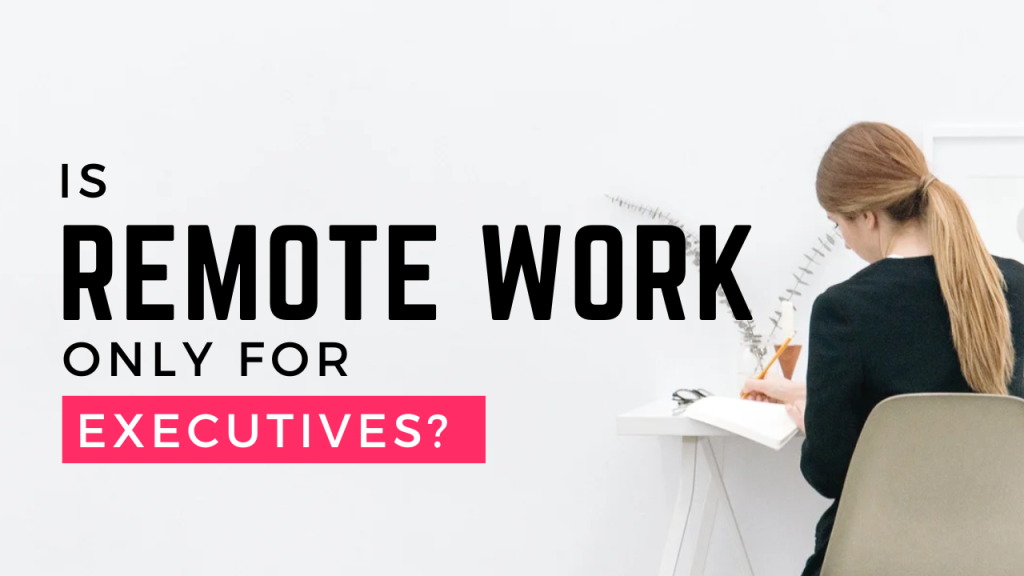The debate over remote work has taken an unexpected turn. It has become clear that some corporate leaders are not adhering to the rules they set for their employees. Many workers are now required to return to the office, while executives continue to enjoy the luxury of working from home. This double standard has sparked significant outrage and raised concerns about the fairness of these policies.
Moreover, this discrepancy has led many employees to question the true intentions behind these return-to-office mandates. Workers are starting to wonder why their leaders are exempt from the rules that apply to everyone else. The inconsistency in these policies has left employees feeling undervalued and alienated, further deepening the divide between management and staff.
The ongoing situation has brought to light the growing tension between company executives and their employees. As more leaders choose to work remotely while enforcing strict in-office policies, the trust and morale of the workforce continue to deteriorate. The debate surrounding remote work is far from over, and the implications for workplace fairness are becoming increasingly clear.
The Growing Divide: Rules for Workers, Freedom for Leaders
When the COVID-19 pandemic forced a global shift to remote work, employees across industries quickly adapted to new working methods. Many found that remote work offered a better work-life balance, increased productivity, and reduced stress. However, as the pandemic subsided, numerous companies began rolling out return-to-office (RTO) mandates. Yet, it has become clear that these mandates are not applied equally.
Recent reports highlight that while corporate staff must return to the office at least three days a week, some top executives continue to work remotely. This double standard has not gone unnoticed, particularly in high-profile companies like Starbucks. Here, the discrepancy is especially glaring, with employees feeling demoralized and questioning the fairness of such policies.
This situation is not unique to global corporations; it also resonates in the Philippines. For example, a CEO from a well-known company in the Philippines suggested that remote work could make employees “dumber.” This rhetoric implies that working from home diminishes professional growth and intellectual engagement. Such comments only deepen the divide between executives and their workforce, eroding trust and morale. This growing disconnect has become a significant point of contention, fueling debates on the real motivations behind RTO policies.
The Benefits and Challenges of Remote Work
Remote work undeniably offers significant benefits. Studies show it can enhance productivity, reduce employee turnover, and improve job satisfaction. For instance, a study published in PLOS ONE found that remote work can increase productivity by 13% and reduce turnover rates by 50%. Additionally, the flexibility of working from home helps employees manage their personal and professional lives better, leading to a healthier work-life balance.
However, remote work is not without challenges. Isolation, lack of direct supervision, and blurred work-life boundaries are common concerns. These issues can result in burnout, reduced team cohesion, and hindered career progression. Despite these challenges, many employees still prefer remote work, valuing the autonomy and flexibility it provides.
Why Are Executives Exempt?
The question of why executives are exempt from the rules they impose on employees is complex. One reason could be the perceived need for executives to have greater flexibility, given the demanding nature of their roles. They might argue that their responsibilities require them to work in environments where they are most productive, even if that means staying home.
Another possible reason is the belief that leadership roles inherently require more autonomy. However, this rationale fails to address the growing sense of inequality among employees who must follow stricter policies. This inconsistency can undermine morale, creating a divide between leadership and the rest of the workforce.
The Implications of This Double Standard
The ongoing discrepancy in remote work policies between executives and employees has significant implications for company culture and employee trust. When leaders do not follow the same rules they impose on others, it suggests they are above those rules. This perception can foster resentment, decreased loyalty, and higher turnover rates among employees who feel they are being treated unfairly.
Moreover, this double standard weakens the arguments companies use to justify return-to-office mandates, such as the need for better collaboration, innovation, and maintaining company culture. If these reasons are genuinely valid, they should apply equally to all employees, regardless of their position within the company.
The Path Forward: Fairness in Remote Work Policies
As the remote work debate continues, it is crucial for companies to reassess their policies to ensure both fairness and consistency. If remote work is deemed beneficial for productivity and well-being, it should be accessible to all employees, not just a privileged few. On the other hand, if in-office work is essential for certain business aspects, leaders must lead by example and follow the same standards they set for their teams.
The future of work will likely be more flexible and hybrid, combining the benefits of both remote and in-office environments. However, for this hybrid model to succeed, it must be built on a foundation of trust, transparency, and fairness—values that all members of the organization, from the top down, must uphold consistently.






































